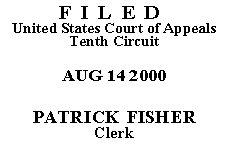

| UNITED STATES OF AMERICA,
Plaintiff-Appellee, v. JESUS PONCE-ESTRADA, Defendant-Appellant. |
|
Jesus Ponce-Estrada pled guilty to conspiracy to distribute or possess with intent to distribute cocaine. At sentencing, Mr. Ponce-Estrada sought relief from the minimum mandatory five-year sentence under the "safety valve" exception to minimum mandatory sentencing. See United States v. Acosta-Olivas, 71 F.3d 375, 377-78 (10th Cir. 1995) (discussing 18 U.S.C. § 3553(f) and USSG § 5C1.2). The district court denied that request and sentenced Mr. Ponce-Estrada to the minimum mandatory sentence, a sixty-month term of imprisonment. Mr. Ponce-Estrada appeals his sentence. Finding no error, we affirm.
Mr. Ponce-Estrada's presentence report did not indicate that he was qualified for relief from the minimum mandatory sentence under § 3553(f)(5), because he had not fully cooperated with the government by providing information about the source of the drugs or the role of his co-conspirators in the transaction for which he pled guilty. See Acosta-Olivas, 71 F.3d at 378-79. Mr. Ponce-Estrada filed a written objection to the presentence report, arguing that he had participated in the debriefing session. See Appellant's App. at 39. At the sentencing hearing, Mr. Ponce-Estrada's counsel elaborated on the objection, arguing that at the debriefing session, the agents were hostile, skeptical and confrontational, and that they focused the conversation on a previous marijuana deal rather than on the cocaine transaction for which Mr. Ponce-Estrada was being sentenced. See Appellant's App. at 64.
We review for clear error the district court's determination concerning eligibility under § 3553(f), see Acosta-Olivas, 71 F.3d at 377; and we review de novo the court's interpretation of the sentencing guidelines. See Acosta-Olivas, 71 F.3d at 378 n.3. The defendant bears the burden of proving by a preponderance of the evidence that he is entitled to "safety valve" relief. See United States v. Gonzalez-Montoya, 161 F.3d 643, 652 (10th Cir. 1998), cert. denied, 526 U.S. 1033 (1999). The government does not bear a burden of seeking out information from the defendant. See United States v. Ramirez, 94 F.3d 1095, 1101 (7th Cir. 1996). However, it is responsible for providing a means by which it can receive information, because "'debriefing by the government plays an important role in permitting a defendant to comply with the disclosure requirement of the safety valve provision.'" United States v. Brack, 188 F.3d 748, 763 (7th Cir. 1999) (internal citation omitted).
At the sentencing hearing, the government made a proffer that Mr. Ponce-Estrada had not complied with the statutory provision because he failed to reveal the source of the drugs and the roles of individuals involved in the offense. See Appellant's App. at 63. The government acknowledged that its debriefing session with Mr. Ponce-Estrada had been fruitless, but stated that it had offered Mr. Ponce-Estrada a second debriefing opportunity. See id. at 65. Significantly, Mr. Ponce-Estrada refused to meet with the government for a second session. See id. In addition, although Mr. Ponce-Estrada's counsel argued at the sentencing hearing that Mr. Ponce-Estrada had told the government what he knew, counsel made no proffer at the sentencing hearing that Mr. Ponce-Estrada had satisfied the requirements of the "safety valve" provision by providing the government with relevant information about the transaction. Under these circumstances, we find no error in Mr. Ponce-Estrada's sentencing.
Accordingly, Jesus Ponce-Estrada's sentence is AFFIRMED.
Entered for the Court
Circuit Judge
*. This order and judgment is not binding precedent, except under the doctrines of law of the case, res judicata, and collateral estoppel. The court generally disfavors the citation of orders and judgments; nevertheless, an order and judgment may be cited under the terms and conditions of 10th Cir. R. 36.3.